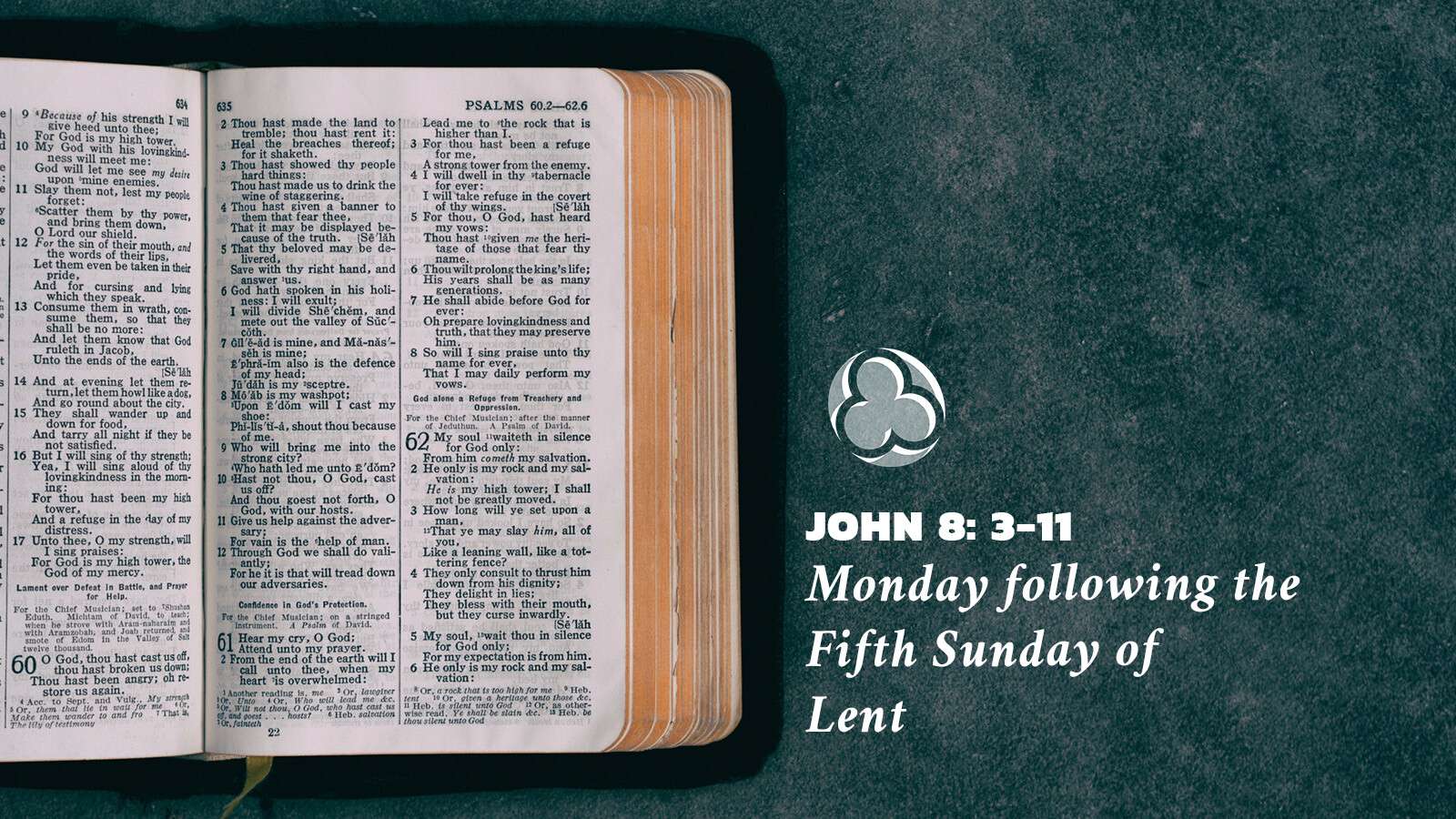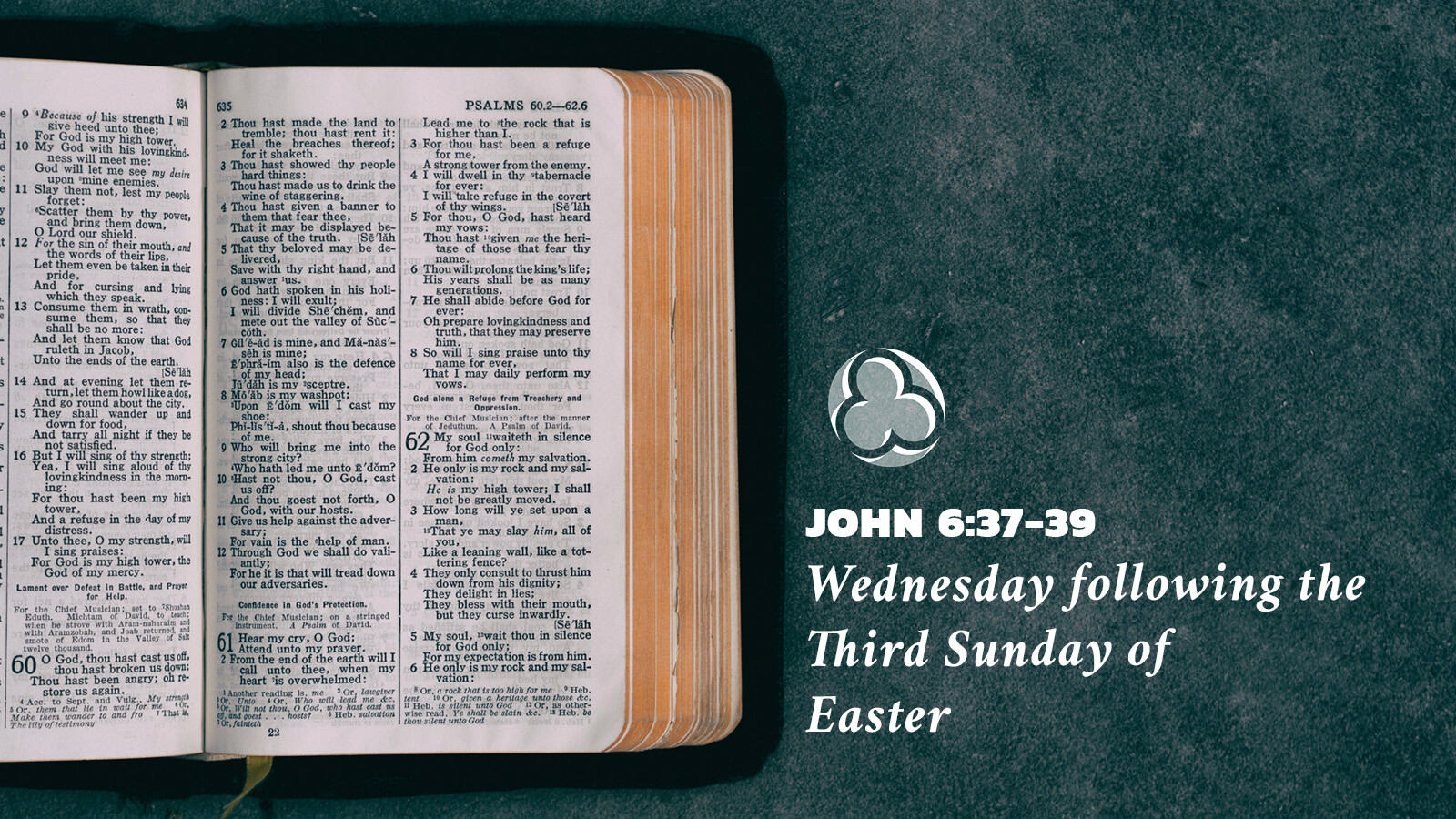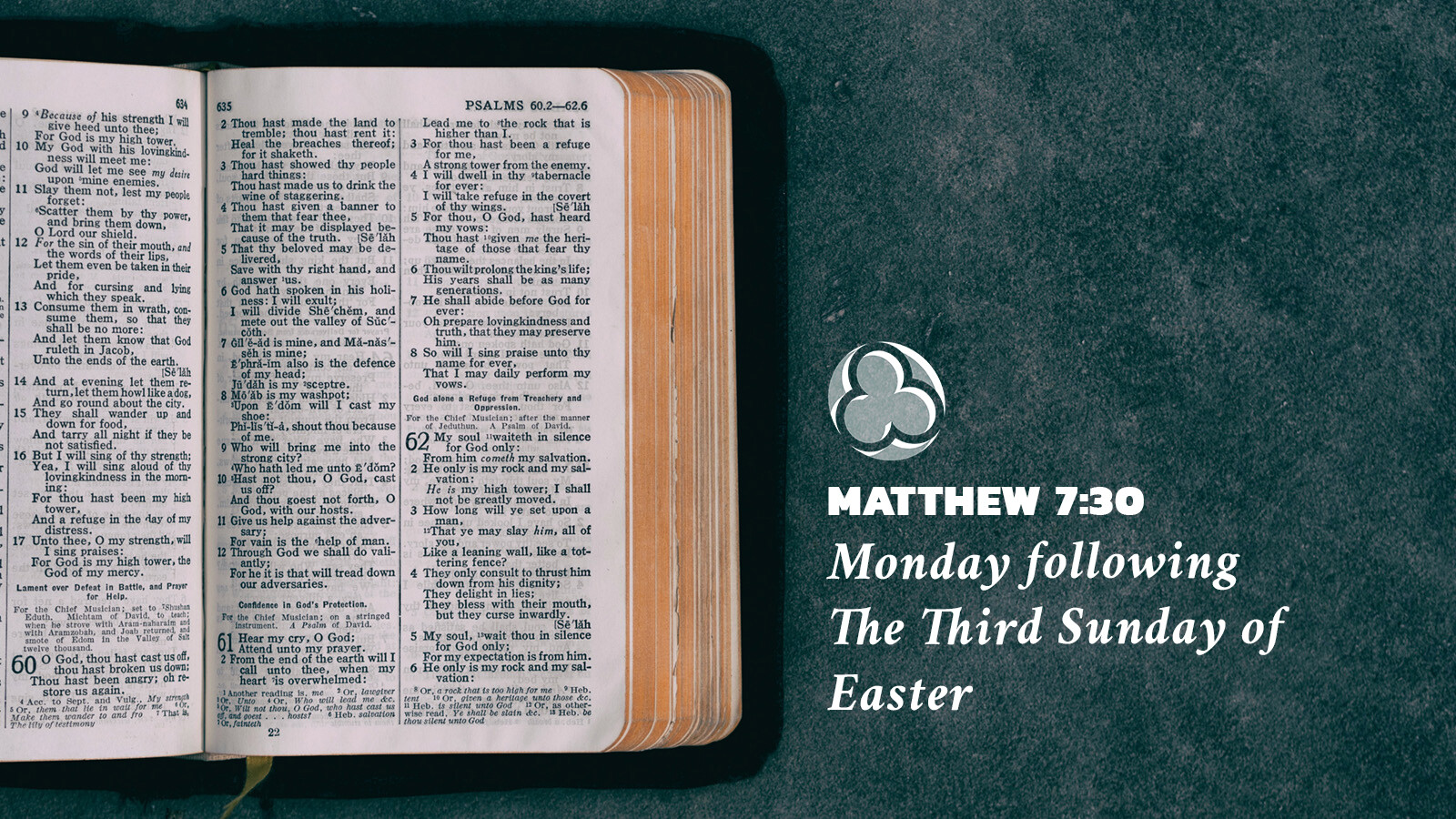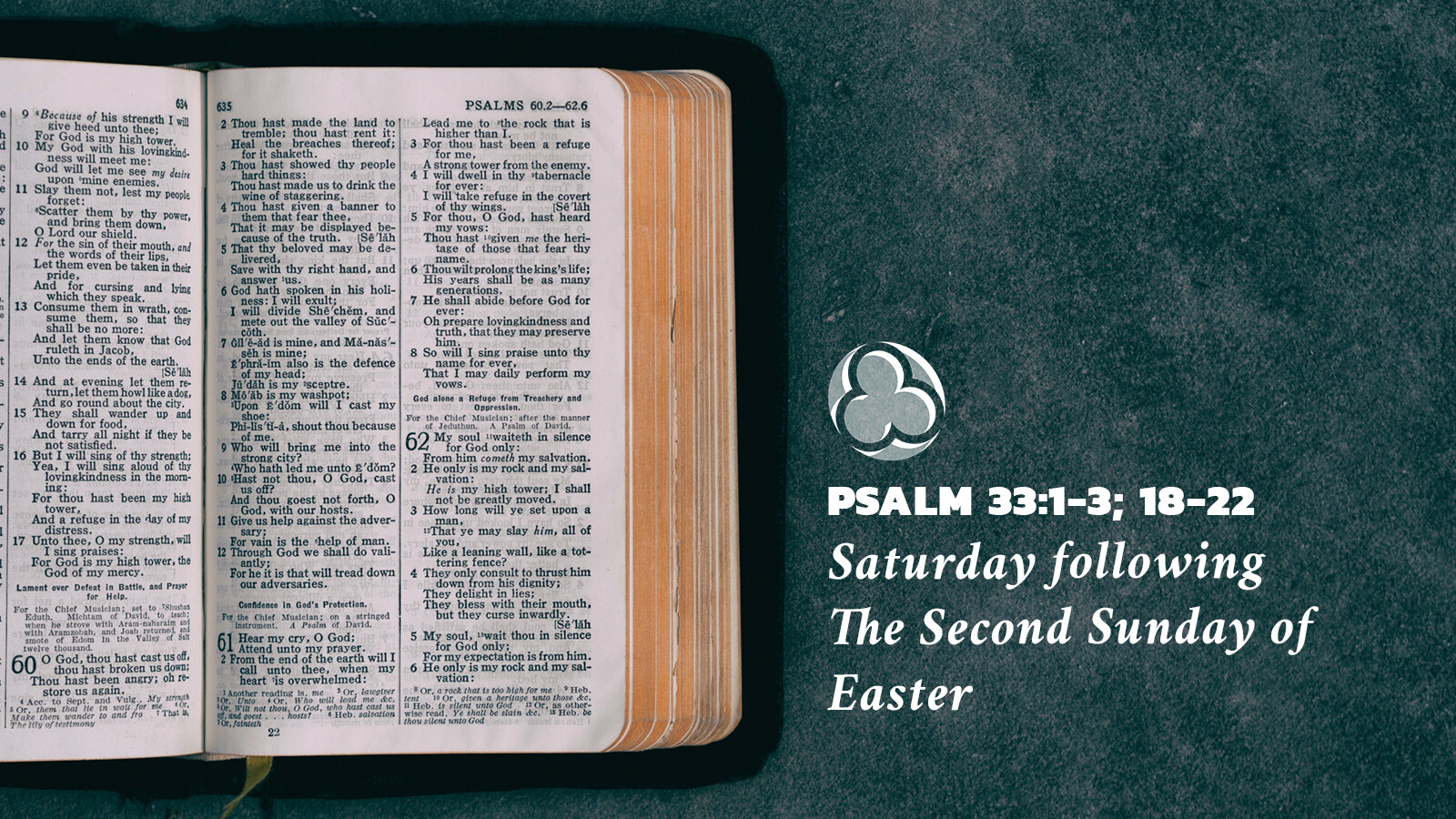
The scribes and the Pharisees brought a woman who had been caught in adultery; and making her stand before all of them, they said to Jesus: ‘Teacher, this woman was caught in the very act of committing adultery. Now the law of Moses commanded us to stone such women. What do you say?’ ....Jesus bent down and wrote with his finger on the ground. As they persisted with their question, He looked up and said: ‘Let anyone among you who is without sin be the first to throw a stone at her. ’ And once again He bent down and wrote on the ground. When they heard this they went away, one by one, beginning with the elders; and Jesus was left alone with the woman, who remained standing there. He straightened up and said, ‘Woman, where are they? Has no one condemned you?’ She said, ‘Noone, sir.’ And Jesus said, ‘Neither do I condemn you. Go your way, and sin no more.’
Lent was easy when I was growing up. Too easy, really. Even if I gave up candy, a bonanza of sweets would appear in my Easter basket on Sunday morning. But these days my Lenten exercise is anything but easy…. though, with God’s help, it holds the promise of greater reward. The real barrier to my closer walk with God turns out to be not an indulgence in appetite, but a stubborn indulgence in being “right.”. My Lenten goal is less about “giving up “and more about “letting go.”
A goal like this can loom large but without much focus, until a Scripture reading arrives to give it shape in the here and now. It’s as if God saw that I needed more of an “open-Book” test. So for “letting go” purposes, today’s Gospel poses this question for me: When I confront someone whose actions and ideas are truly offensive to me, can I let go of the urge to judge him or her as my moral inferior?
It’s a timely question. Like many in this country (and no doubt in our faith community), I’m in great distress about our national politics . And even as I acknowledge this as a lifelong progressive, I also know from my conservative friends and fellow-Parishioners how distressed they were during the prior Administration. So the issue of politics getting intense and personal seems like a bipartisan one to me. If we need to be so right that a political opponent must be judged and condemned as not just wrong but somehow “less than,” there are some pretty basic tenets of our shared faith also at issue. Like professing there is just one, indivisible Body of Christ. Like kneeling together to confess our sinfulness, even as we are one and all embraced by God in His sprawling, beloved human family. Like being taught by Jesus how to pray, asking God to forgive our own sins just as we forgive those who sin against us. Like this Easter Sunday, when we’ll joyously proclaim our victory over death through the One who, while walking among us, demonstrated how to “hate the sin but love the sinner.”
Politicized nonetheless, I enter the Gospel scene, pick up a stone and take my place with fellow-judges. A convicted and immoral wrongdoer stands before us. I imagine an offense that resonates today, one that offends every bit as intensely as adultery did under the law of Moses. The offense I imagine is so repugnant it triggers my basic value system and notions of “right and wrong.” I will and must challenge what I see as the evil “ism“ before me. I’m feeling not only justified in the moment, but also angry, indignant, morally outraged. And just then, with perfect (divine) timing, Jesus kneels and calls my attention to something. He’s scribbling in the dirt of my life. It’s hard at first to read what’s there, so well-hidden it all is in my shadow. But now I make out the words and phrases He’s written . I see in His handwriting so many of my failings, so many times I lost my way, so many things I wish I could erase and take back. It’s an overwhelming litany of blind spots and destructive stumbles. Then I hear His voice in my ear: “Go ahead, my beloved. If you see yourself as morally better, as a non-sinner, throw that stone. Just know it’s dangerously heavy now that you’ve loaded it with your judgment of not just the sin but a fellow-sinner as well. How good is your aim, by the way?”
For this Lenten exercise, I may need occasional holidays from the “breaking news” in politics, especially the kind laden with as much opinion as facts. Silence for reflection proves essential. But the good news is that this Gospel story also highlights the power of silence when a personal matter of faith is pending. Jesus doesn’t verbally answer the Pharisees’ question whether to stone the accused; He instead bends down and writes in the dirt , spelling out I believe what each accuser needed to remember about his own moral failures. When Jesus asks any non-sinner present to throw the first stone… again, only silence. When the Pharisees leave and the woman finds herself alone with this strangely empowered Teacher, there must have been an especially pregnant moment of silence. What do the gifts of silence promise? Freed of having to stand on moral ground higher than another’s, will I be like a liberated Pharisee in this story, the one I imagine being so unburdened in spirit that he went home not to plot punishments under law but to pray how he might give pastoral care to abused women in his community? Or maybe I’ll be like the accused woman, freed from shame and able to see that she sinned not to be condemned by fellow-sinners, but to give voice to the Divine Word that was waiting for her, and has waited for us, from the beginning of time: “Your sins are forgiven; now go use them to reach higher ground. For I love you just as you are, but far too much to let you stay that way.” Thanks be to God!
As our shared Lenten journey draws to its end, may there be more time for silent self-examination in God’s presence. May the sacred gift of that silence free us from all need to cherish our righteousness, to judge the worth of another, or to make claims of moral superiority in divided times. And may we each let go enough to listen, better to hear the voice of our forgiving God within. How else, except through us, can it then echo in all the broken places?
Musical Reflection - You Say - Lauren Daigle
The fruit of silence is prayer.
The fruit of prayer is faith.
The fruit of faith is love.
The fruit of love is service.
The fruit of service is peace. Amen.
-Mother Teresa






Login To Leave Comment